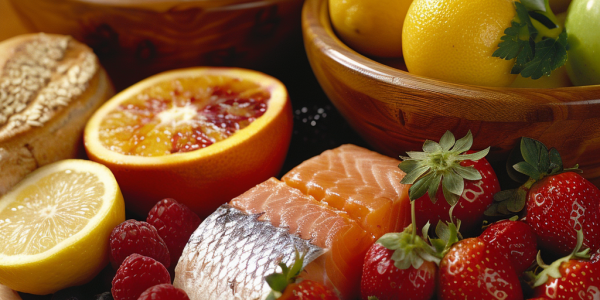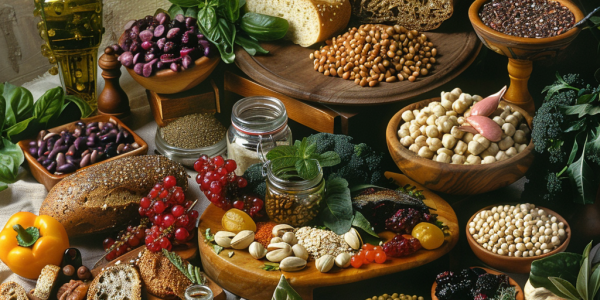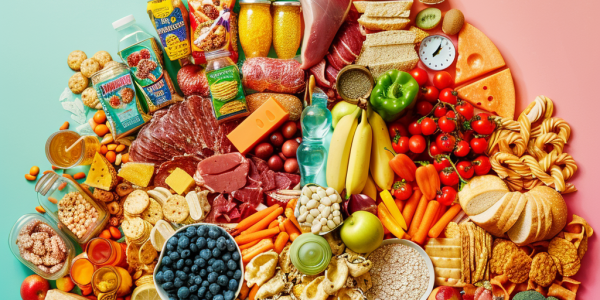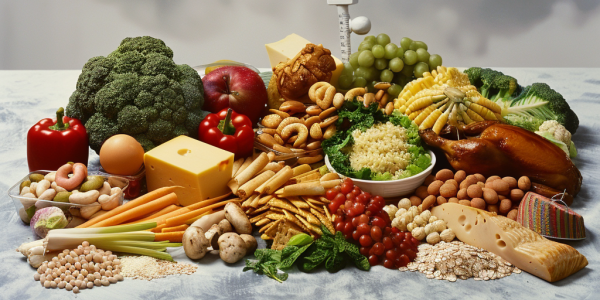Dietary Choices Linked to Reduced Risk of Rheumatoid Arthritis
Recent research from Leeds University highlights the significant impact of diet on the risk of rheumatoid arthritis. The study identifies three key foods—fruits, oily fish, and whole grains—that may help reduce the likelihood of developing this painful inflammatory condition. Incorporating these foods into your diet can enhance overall health and potentially protect against arthritis. Additionally, moderate alcohol consumption may offer benefits, while excessive intake of tea and coffee could increase risk. Prioritizing a balanced diet is essential for joint health and disease prevention.
Top Foods to Boost Your Energy Levels Throughout the Day
Discover the top energy-boosting foods to enhance productivity and well-being. From nutrient-rich nuts and bananas to dark chocolate and leafy greens, learn how these foods can help you maintain optimal energy levels throughout the day.
Key Foods for Longevity: Insights from Centenarians’ Diets
Discover the top 10 foods that contribute to the longevity of centenarians living in Blue Zones. From nutrient-dense beans and leafy greens to heart-healthy fish and antioxidant-rich dark chocolate, learn how these dietary staples can enhance your health and potentially increase your lifespan.
Ultra-Processed Foods Linked to Accelerated Biological Aging
Recent studies reveal a troubling link between ultra-processed foods (UPFs) and accelerated biological aging. Research from Italy shows that a diet high in UPFs, which includes packaged snacks and sugary drinks, can lead to significant health risks and increased aging markers. With over 57% of food consumed in the UK classified as ultra-processed, experts urge a shift towards whole, minimally processed foods for better health outcomes.
Ancient Toddler’s Diet Reveals Mammoths as Key Food Source for First Americans
Recent research reveals that nearly 50% of the diet of a 12,800-year-old toddler from Montana consisted of mammoth meat, highlighting the subsistence strategies of early Americans. This groundbreaking study sheds light on the hunting practices and ecological dynamics of the first inhabitants of North America, emphasizing their reliance on large game during the late Pleistocene epoch.
Study Reveals Ultra-Processed Foods May Aid Muscle Growth
Recent research reveals that ultra-processed foods may contribute to muscle growth, challenging the belief that they only lead to weight gain. The study highlights a complex relationship between these foods and muscle development, indicating that even modest consumption can enhance muscle mass due to high caloric density and essential nutrients. However, experts caution against excessive intake due to potential long-term health risks. A balanced diet incorporating whole foods alongside moderate ultra-processed food consumption is recommended for optimal health and fitness.
Study Reveals Nutrition and Exercise Key to Reducing Anxiety in College Students
A recent study from Silpakorn University reveals that nutrition and physical activity significantly reduce anxiety levels in college students. With physical activity contributing to a 36.93% decrease and healthy eating habits leading to a 24.9% reduction in anxiety symptoms, the research highlights the importance of a holistic approach to mental health. Students are encouraged to engage in regular exercise, adopt a nutrient-rich diet, prioritize sleep, and practice mindfulness to enhance their well-being and academic performance.
Essential Tips for Boosting Your Immune System This Winter
As winter approaches, maintaining a strong immune system is crucial to combat seasonal illnesses. Mountain Peaks Family Practice in Orem, Utah, shares essential tips for boosting immunity through proper nutrition, regular exercise, quality sleep, hydration, stress management, and supplementation. Discover how to support your immune health this winter with expert advice from Dr. Robert Durrans.
North Carolina Woman Loses 35 Pounds on Sardine-Only Diet
Jane Crummett from Mint Hill, North Carolina, has transformed her health by adopting a strict sardine-based diet, resulting in a 35-pound weight loss and relief from chronic pain. Following a zero-carb and carnivore lifestyle, she emphasizes the importance of self-experimentation in nutrition. Her journey highlights the potential benefits and risks of extreme diets, prompting discussions among health professionals about balanced eating.
8 Foods to Avoid for Reducing Colorectal Cancer Risk
Colorectal cancer is a major health concern that often starts as benign polyps. Recognizing early symptoms and making informed dietary choices can significantly reduce risk. Avoid processed meats, red meat, sugary beverages, and highly processed foods to promote better health. Adopting a balanced diet rich in whole grains, fruits, and vegetables, alongside regular exercise, is essential for lowering the risk of colorectal cancer.










